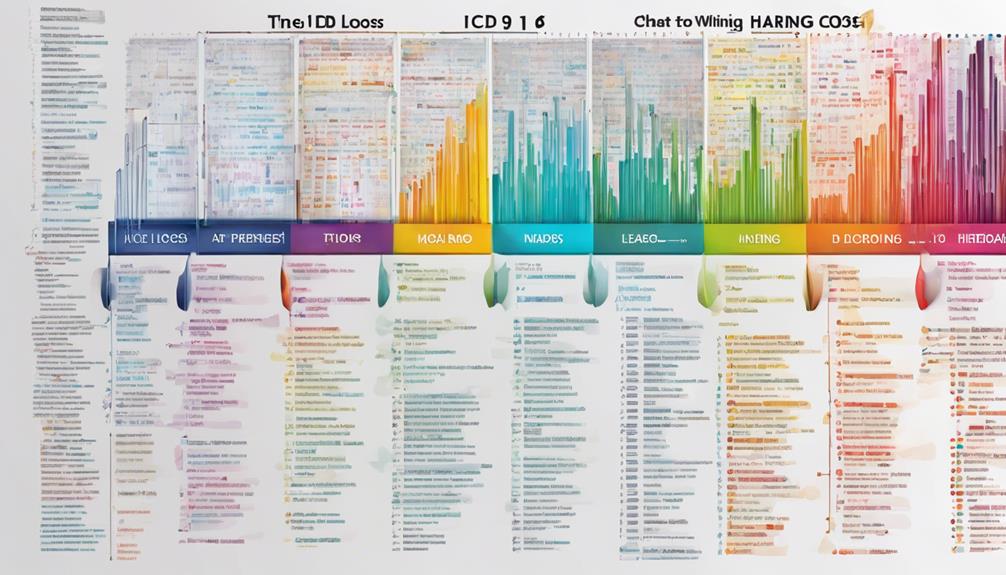As a senior, several health issues and medication side effects can hide or mimic your hearing problems. Age-related decline broadens your difficulty understanding speech, especially in noise. Certain medications, like antibiotics or chemotherapy drugs, may cause temporary or permanent hearing loss and dizziness, making diagnosis tricky. Symptoms often overlap, blending hearing issues with balance problems or neurological signs. Staying aware of these factors and discussing changes with your doctor can help uncover the true cause—continue further to learn more.
Key Takeaways
- Age-related decline can gradually obscure hearing loss, making detection challenging in seniors.
- Certain medications, like antibiotics and chemotherapy agents, can cause temporary or permanent hearing impairment.
- Symptoms such as dizziness or imbalance from medication side effects may mimic neurological or inner ear issues.
- Overlapping symptoms from comorbidities can complicate diagnosis and mask underlying hearing problems.
- Regular health evaluations and medication reviews are essential to identify and manage factors masking hearing issues.

Many health conditions common in seniors can hide or mimic hearing problems, making it harder to identify the true cause of their communication difficulties. As you age, you might notice hearing loss, but other factors could be contributing to or disguising these issues. One significant factor is age-related decline, which naturally affects your auditory system over time. This decline can cause difficulty in understanding speech, especially in noisy environments, and may be mistaken for other cognitive issues. Because age-related hearing loss develops gradually, you might not even realize that your hearing has worsened, which complicates diagnosis and treatment.
Age-related decline can mask or mimic hearing problems, complicating diagnosis and treatment.
In addition to natural aging, medication side effects can play a role in masking hearing problems. Many seniors take multiple medications for various health conditions, and some drugs have side effects that impact your hearing or balance. For example, certain antibiotics, chemotherapy agents, and high doses of aspirin are known to cause temporary or permanent hearing issues. These side effects might be subtle or mistaken for other health problems, leading you or your healthcare provider to overlook hearing loss as the root cause of communication difficulties. This overlap makes it essential to review your medications regularly and discuss any changes with your doctor.
Moreover, medication side effects may also contribute to dizziness or imbalance, which can be confused with neurological conditions or inner ear problems. When these symptoms occur alongside hearing difficulties, it becomes more challenging to determine whether the primary issue is auditory or related to medication effects. Often, the side effects of medications can mimic or worsen existing age-related decline, creating a confusing picture of your health. This confusion can delay proper diagnosis and treatment, leaving you to struggle with communication and safety concerns longer than necessary.
It’s important to recognize that these overlapping factors—age-related decline and medication side effects—don’t just coexist but can also amplify each other. For instance, if medication side effects cause slight hearing impairment or dizziness, it might accelerate the perception of hearing loss or make it seem more severe. This interaction underscores the importance of detailed health assessments that consider all aspects of your health rather than viewing hearing loss in isolation. Being proactive about discussing your medications and health changes with your healthcare provider can help you identify whether your symptoms stem from natural aging, medication effects, or a combination of both. Recognizing these common comorbidities early on can lead to more effective management and better communication outcomes, allowing you to maintain your independence and quality of life.
Additionally, understanding the impact of comorbidities on hearing health can guide you toward more comprehensive care strategies.
Frequently Asked Questions
How Can I Differentiate Between Hearing Loss and Cognitive Decline?
To tell apart hearing loss from cognitive decline, pay attention to auditory cues. If you notice difficulty understanding speech, especially in noisy settings, it could be hearing loss. Cognitive decline often affects memory and reasoning more than hearing clarity. Conduct cognitive assessments to evaluate mental functions, and observe if communication issues improve with hearing aids. This combined approach helps you distinguish between the two conditions effectively.
Are There Specific Medications That Worsen Hearing Problems?
Certain medications can worsen hearing problems due to medication side effects or drug interactions. You should watch for drugs like aminoglycosides, loop diuretics, and some chemotherapy agents, which are known to damage hearing. Always inform your healthcare provider about your hearing concerns and any other medications you take. They can adjust your treatment plan to minimize risks and protect your hearing health.
Can Untreated Hearing Issues Lead to Other Health Complications?
Ignoring hearing health is like leaving a crack in a dam—eventually, issues can flood your overall well-being. Untreated hearing problems may lead to social isolation, depression, and cognitive decline. These health complications can make it harder for you to communicate and catch medical diagnoses early. Prioritizing hearing health helps protect your mental and physical health, ensuring you stay connected and aware of your body’s needs.
How Often Should Seniors Get Their Hearing Checked if They Have Comorbidities?
You should get regular hearing tests based on your medical check-up schedules, especially if you have comorbidities. Typically, it’s recommended to have a hearing test at least once a year, but your healthcare provider may suggest more frequent screenings if your health conditions could mask hearing issues. Staying proactive helps catch problems early, ensuring you maintain good communication and overall well-being.
What Lifestyle Changes Can Help Manage Masking Factors of Hearing Loss?
To manage masking factors of hearing loss, you should focus on lifestyle modifications like avoiding loud noises and using hearing protection whenever you’re exposed to noise. Reducing exposure to harmful sounds helps prevent further damage. Maintain a healthy diet, exercise regularly, and keep chronic conditions under control. These steps support overall ear health, making it easier to hear clearly, and protect your hearing for the long term.
Conclusion
Understanding how comorbidities can hide hearing issues is vital, especially since nearly 70% of seniors over 70 experience hearing loss. These hidden challenges might make it harder to notice or seek help for hearing problems. By staying aware and proactive, you can catch issues early and improve your quality of life. Don’t let unseen health issues keep you from hearing life’s precious moments—you deserve to stay connected and engaged.









